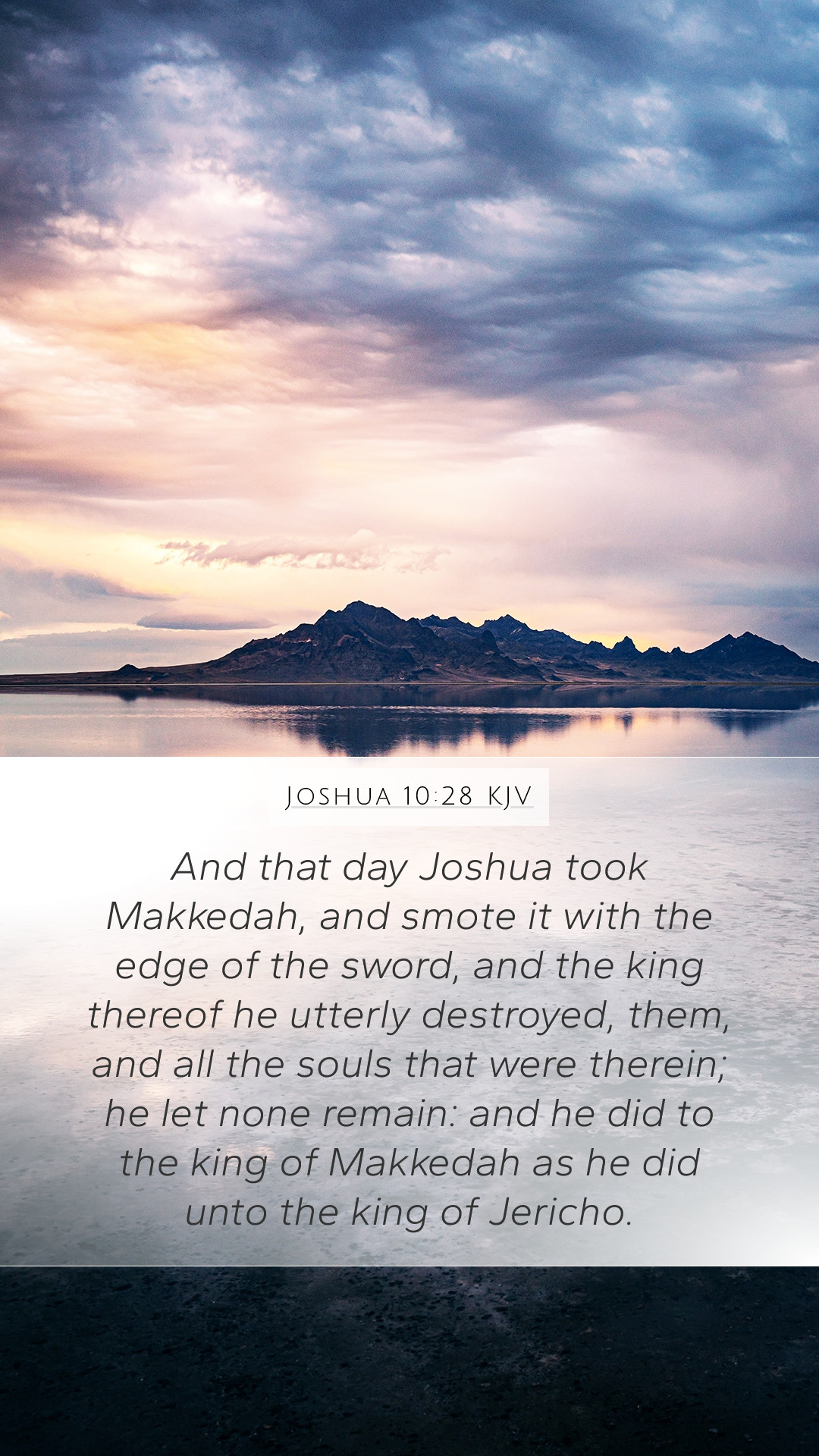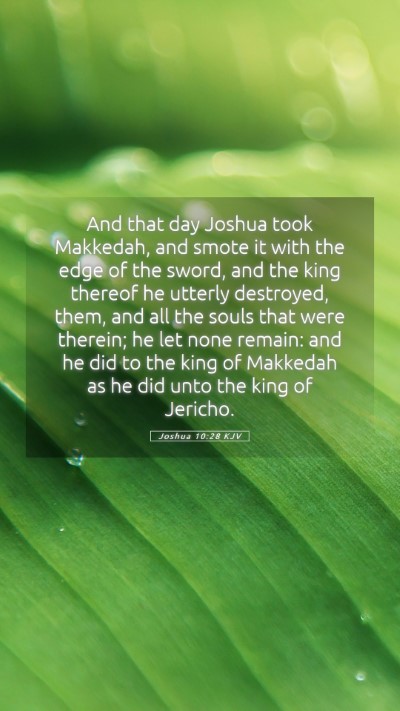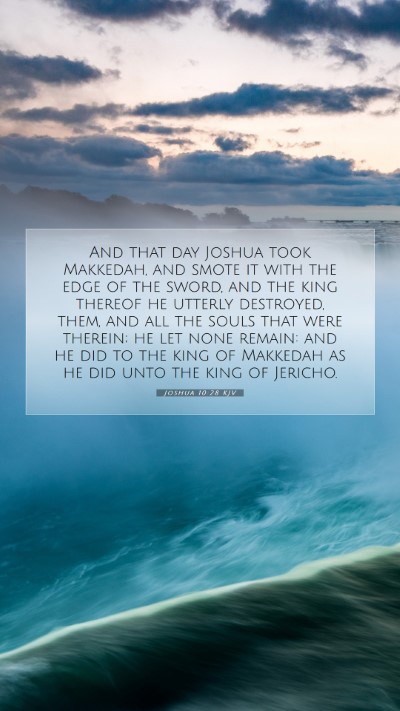Understanding Joshua 10:28
The verse Joshua 10:28 states: "And that day Joshua took Makkedah, and smote it with the edge of the sword, and the king thereof he utterly destroyed, and all the souls that were therein; he let none remain: and he did to the king of Makkedah as he did unto the king of Jericho."
This passage is a significant moment within the narrative of Joshua's conquests in the Promised Land. Understanding this verse requires an exploration of its context, implications, and theological significance.
Bible Verse Commentary
According to Matthew Henry, this verse demonstrates Joshua's decisive leadership and the fulfillment of God's command. The taking of Makkedah illustrates the victory of Israel under Joshua's command and serves as a testament to God's power in aiding His people during warfare.
Albert Barnes elaborates that the destruction of Makkedah was aligned with God's judgment against the Canaanites' idolatry and immorality. It is crucial to view this event through the lens of divine justice, where God, through Israel, executed judgment upon a corrupt society.
Adam Clarke provides insight into the tactical aspects of the conquest, highlighting that these events were not mere acts of aggression but were part of a divine strategy to establish Israel in the land promised to their ancestors. Clarke notes the totality of the destruction signifies the seriousness of Israel’s mission to cleanse the land of its previous inhabitants' corrupt practices.
Significance and Application
Overall, Joshua 10:28 is emblematic of the overarching theme within the Book of Joshua, which is the fulfillment of God's promised victory for His people. This victory is illustrated through concrete actions taken by Joshua as he leads Israel in a series of military engagements to acquire the land. Understanding this verse provides several implications:
- Faith and Obedience: The narrative underscores the blessings that come with following God's commands and the importance of faithfulness in challenging circumstances.
- Divine Justice: It serves as a reminder that God takes a stance against sin and that judgment is part of His character.
- Historical Context: Understanding the historical backdrop enriches our knowledge about God's covenant with Israel and the significance of their conquests in the theological narrative.
Cross References
This verse relates to several other passages that explore similar themes. Here are a few:
- Joshua 6:21 - The destruction of Jericho.
- Deuteronomy 7:2 - God's command regarding the nations in Canaan.
- 1 Samuel 15:3 - God's instruction to Saul to destroy Amalek.
Conclusion
Joshua 10:28 is a powerful verse that not only points to the historical conquests of Israel but also reflects deeper spiritual truths about God's justice and the importance of obedience. For those engaging in bible study insights or online bible study, understanding this scripture within its broader biblical context is essential for grasping its full implications.
As one studies this verse, consider how to apply its lessons to daily life, emphasizing the necessity of faithfulness and the recognition of God's role in the affairs of humanity.


